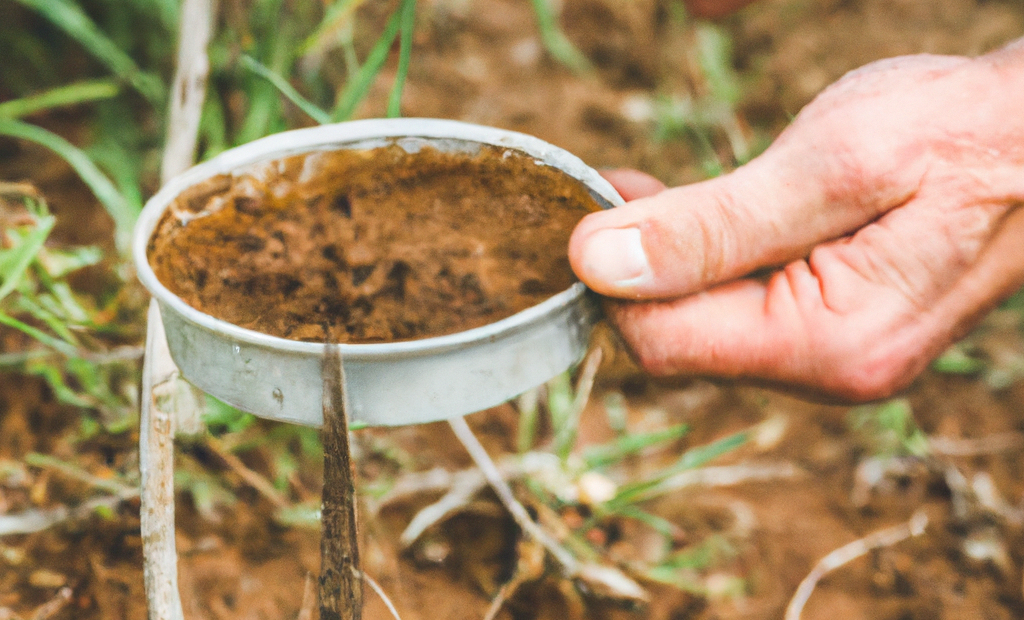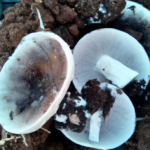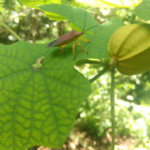The sections highlight the crucial role of biofertilizers in organic farming, providing essential nutrients and promoting soil health and biodiversity. Biofertilizers, as a sustainable alternative to chemical fertilizers, help prevent diseases in crops and strengthen the natural defenses of plants. Choosing biofertilizers over traditional fertilizers can improve nutrient availability, encourage biodiversity and restore natural soil processes, leading to healthier soil and more resilient plants. In short, biofertilizers are valuable tools for the sustainability of organic farming and the prevention of crop diseases.
In a world increasingly aware of environmental protection and sustainability, organic farming has become a viable and increasingly popular alternative to conventional agricultural practices. However, one of the biggest concerns that farmers face in this type of agriculture is the prevention of crop diseases. This article addresses that question, exploring how green techniques, including the use of biofertilizers and agricultural products, can be used to keep crop diseases at bay. We will discuss the crucial role that biofertilizers play in organic farming, how agricultural products can help prevent crop diseases, and how organic farming techniques can be used for this purpose. In addition, we will analyze the difference between conventional fertilizers and biofertilizers, and their respective impact on the prevention of diseases in crops. The aim of this article is to provide a comprehensive view on how organic farming and its associated products can play a vital role in preventing crop diseases.
- 1. "The role of biofertilizers in disease prevention in organic farming"
- 2. "How agricultural products can help prevent crop diseases"
- 3. "Organic agriculture: use of ecological techniques to prevent diseases in crops"
- 4. "Fertilizers versus biofertilizers: their impact on crop disease prevention."
1. "The role of biofertilizers in disease prevention in organic farming"
Biofertilizers play a crucial role in disease prevention in organic farming. They act as a natural and sustainable alternative to chemical fertilizers, providing essential nutrients for healthy and strong crop growth. Biofertilizers improve soil quality and increase its biodiversity, creating an environment in which plants become more resistant to diseases. In addition, numerous agricultural products are based on biofertilizers, which promote soil health and the development of beneficial microbial flora. In this way, the use of biofertilizers in organic farming not only contributes to sustainability, but also helps prevent the appearance and spread of diseases in crops.
2. "How agricultural products can help prevent crop diseases"
Agricultural products, such as fertilizers and biofertilizers, play a crucial role in preventing crop diseases. Within the framework of organic farming, these products provide essential nutrients to strengthen plants and improve their resistance to various diseases. Fertilizers, for example, are essential for the healthy growth of crops and to enhance their natural defenses. On the other hand, biofertilizers, which are biological products that contain beneficial microorganisms, can improve soil health and provide plants with nutritional elements in a more sustainable and ecological way. Together, these agricultural products are valuable tools for keeping crops healthy and preventing the onset of disease.
3. "Organic agriculture: use of ecological techniques to prevent diseases in crops"
Organic farming is a practice that aims to preserve the health of the ecosystem, using techniques that prevent diseases in crops without harming the environment. Among these techniques, the use of biofertilizers and agricultural products of natural origin stands out, which, unlike conventional chemical fertilizers, do not contaminate the soil or water. Biofertilizers are an excellent alternative, since they not only provide nutrients to plants, but also improve the structure of the soil, increase its capacity to retain water and promote the growth of beneficial microorganisms that help prevent diseases in crops. In this sense, organic farming not only protects crops from diseases, but also contributes to the sustainability and health of the planet.
4. "Fertilizers versus biofertilizers: their impact on crop disease prevention."
In organic farming, the choice between conventional fertilizers and biofertilizers can have a significant impact on the prevention of crop diseases. Traditional fertilizers, although effective in providing the nutrients necessary for plant growth, can upset the balance of the soil and contribute to the emergence of harmful pathogens. On the other hand, biofertilizers, which are agricultural products derived from living organisms, can improve soil health and plant resistance to disease without the harmful effects of conventional fertilizers. Biofertilizers improve nutrient availability, promote biological diversity, and restore natural soil processes, resulting in healthier soil and more disease-resistant plants. These advantages make biofertilizers a valuable tool in the prevention of crop diseases in organic farming.
In conclusion, the prevention of diseases in crops using ecological techniques is a viable and sustainable strategy that offers multiple benefits. The use of biofertilizers in organic farming plays a crucial role in this prevention, thanks to their properties to improve soil and plant health. Likewise, agricultural products developed specifically for disease control are a valuable tool for organic farmers. Although conventional fertilizers can have an impact on disease prevention, biofertilizers represent a more sustainable and less harmful alternative to the environment. Ultimately, organic farming and the use of organic techniques and products to prevent crop diseases not only contribute to crop health, but also to the sustainability and resilience of our food systems.


